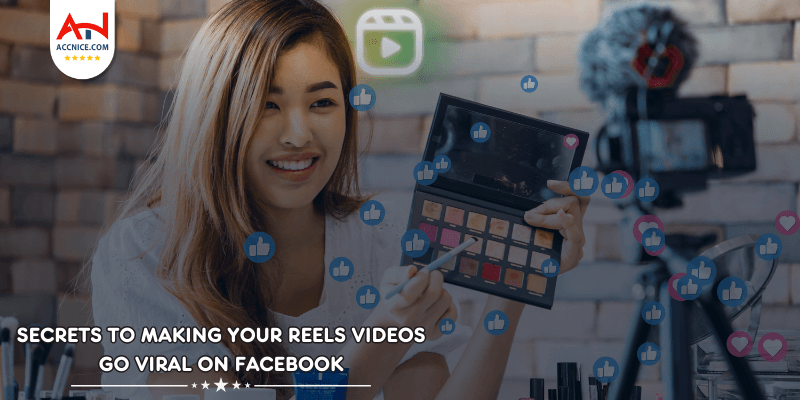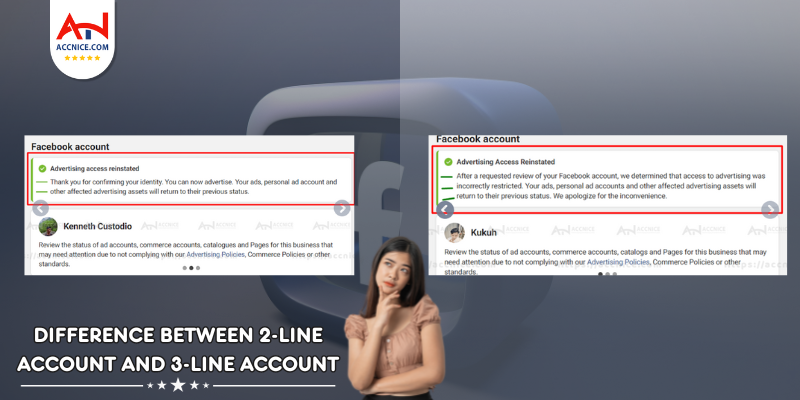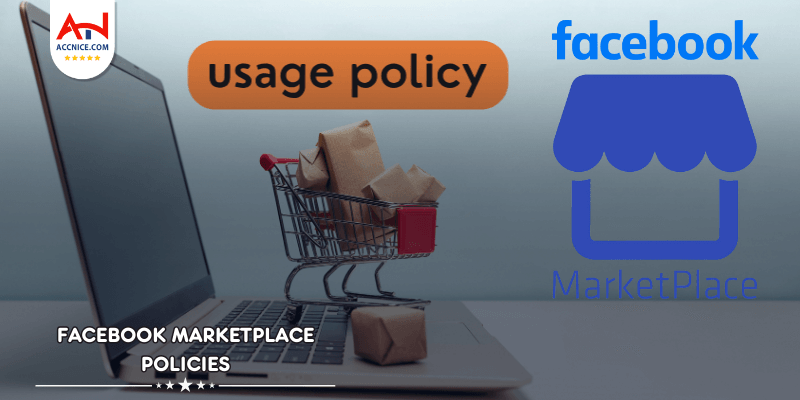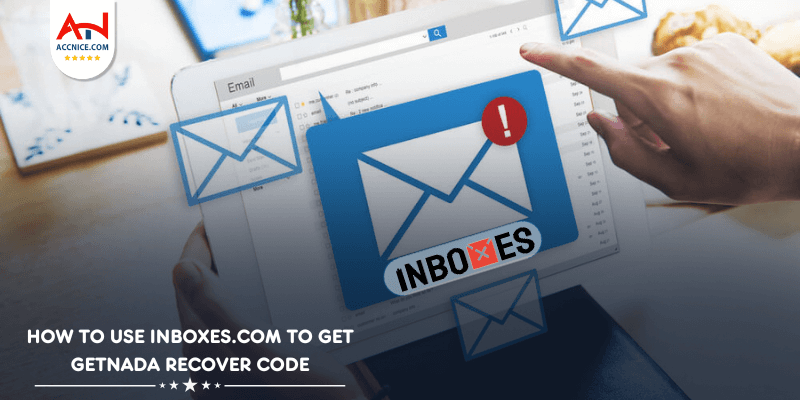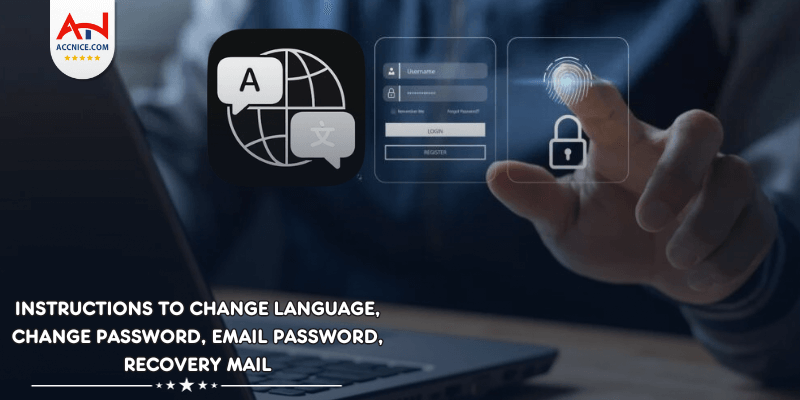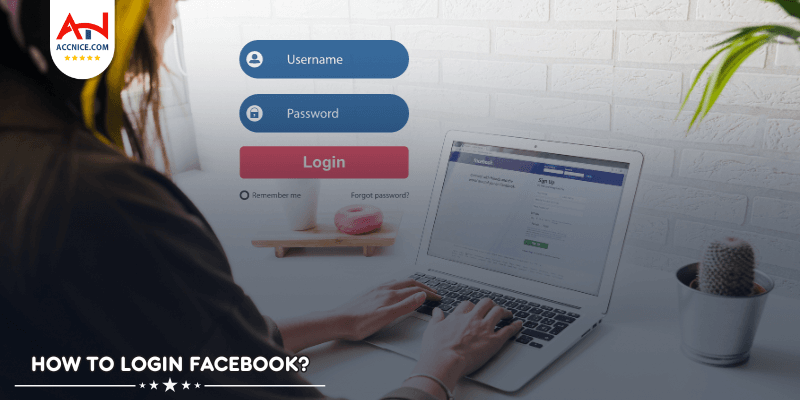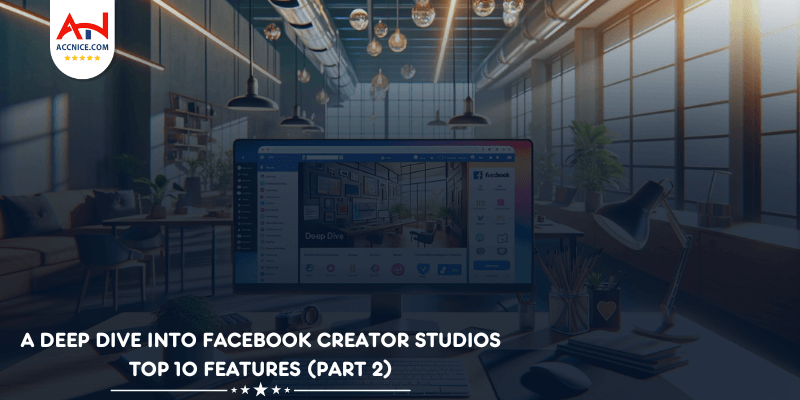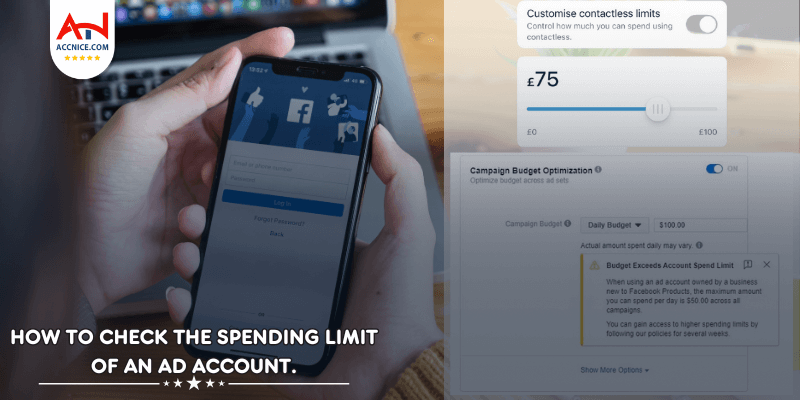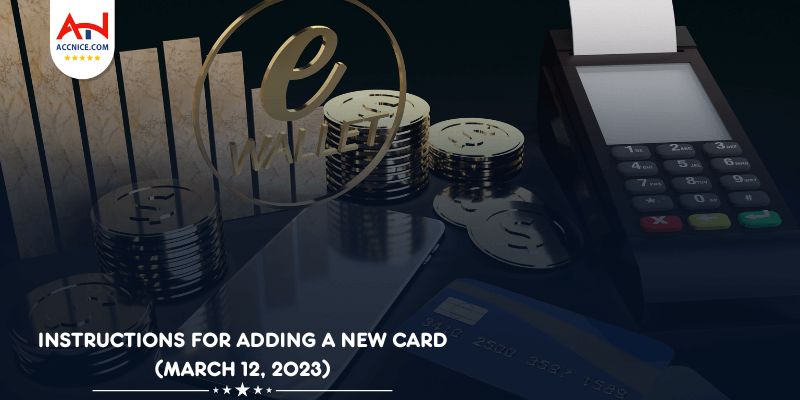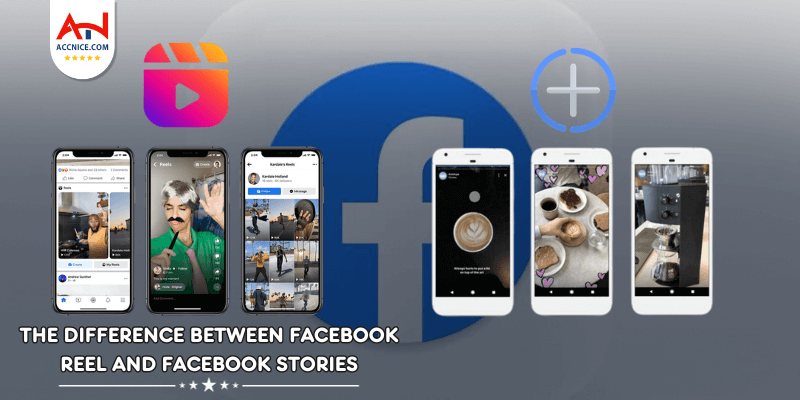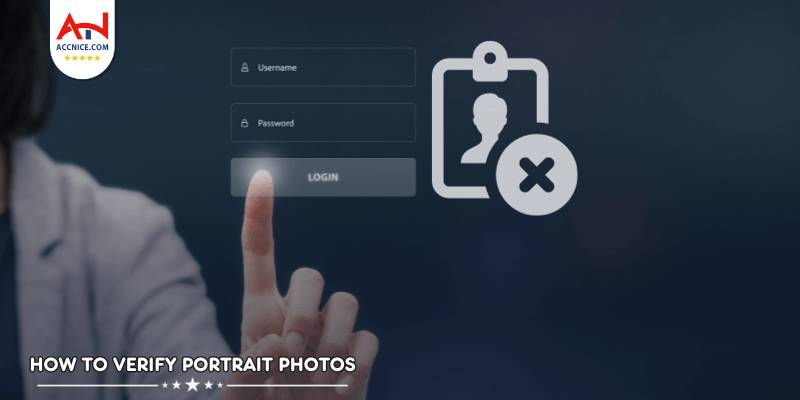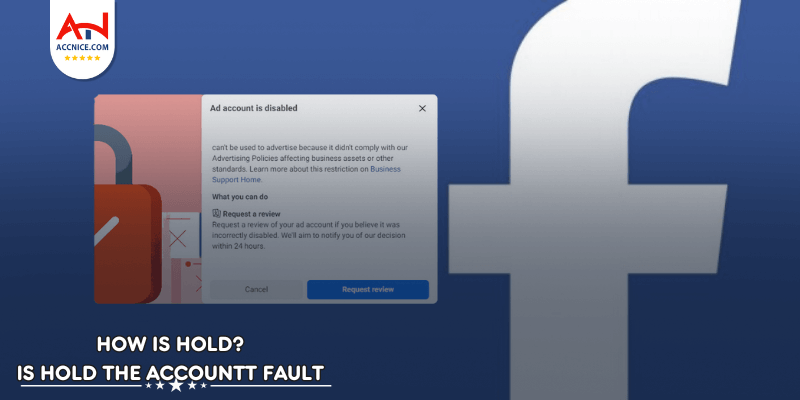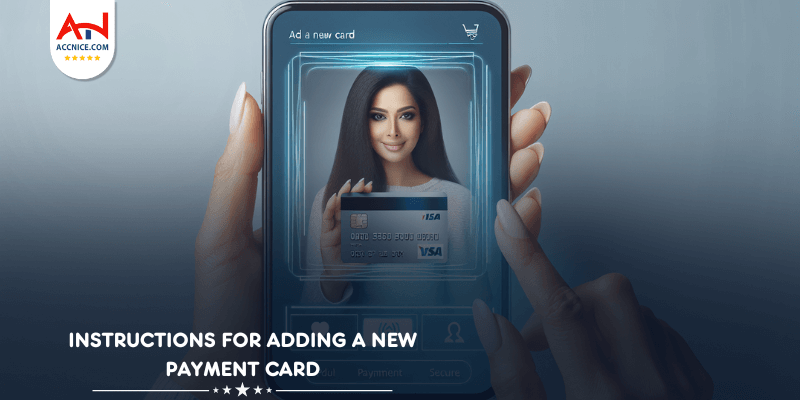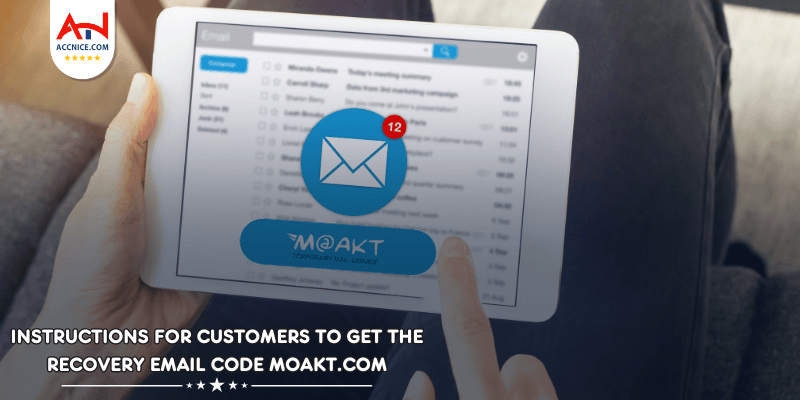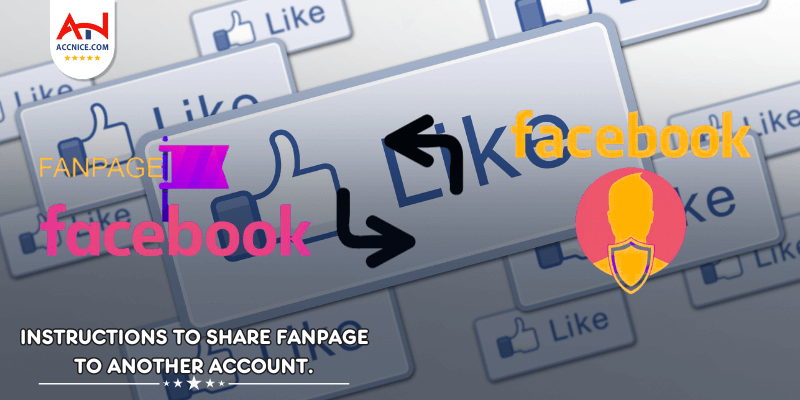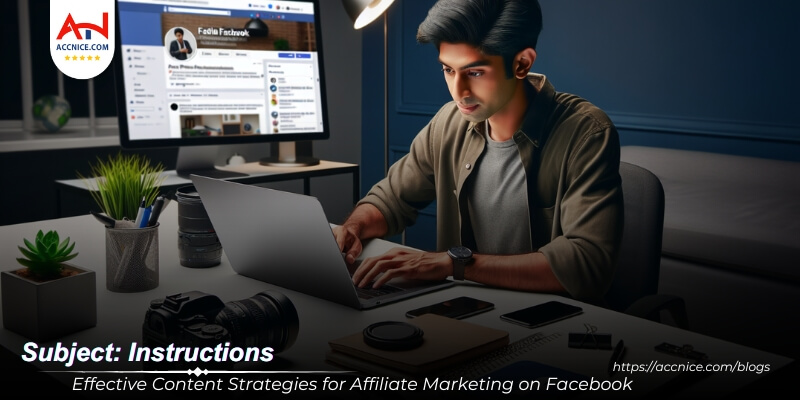
Affiliate marketing on Facebook offers a lucrative opportunity to leverage the platform's vast user base. However, success in this field requires a well-thought-out content strategy. This article Accnice will guide you through effective content strategies to boost your affiliate marketing efforts on Facebook.
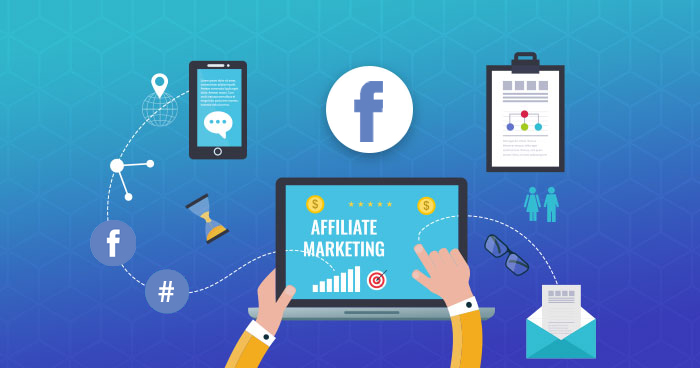
Before crafting any content, it's crucial to understand who your target audience is. Identify their interests, demographics, and online behavior. This will help you tailor your content to meet their needs and preferences. Start by analyzing your existing audience using tools like Google Analytics, Facebook Insights, and customer surveys. Look for patterns in age, gender, location, interests, and online activities. Understanding what motivates and engages your audience will enable you to create content that resonates with them and drives higher engagement and conversions.
Develop detailed audience personas to represent different segments of your target market. These personas should include comprehensive information such as age, gender, location, job title, interests, challenges, and pain points. Consider including details about their typical day, preferred social media platforms, and purchasing behaviors. Creating these personas involves gathering data from market research, customer feedback, and analysis of your current audience. By having well-defined personas, you can craft more personalized and engaging content that speaks directly to the specific needs and desires of each segment of your audience.
Example of an Audience Persona:
Name: Sarah
Age: 29
Gender: Female
Location: New York City
Occupation: Marketing Manager
Interests: Fitness, healthy eating, travel
Pain Points: Limited time for workouts, finding reliable health advice, balancing work and personal life
Preferred Social Media Platforms: Instagram, Facebook
Online Behavior: Frequently searches for quick workout routines, follows fitness influencers, reads reviews before purchasing health products
By understanding Sarah's needs and preferences, you can create content that addresses her challenges, such as quick workout tips, reliable health advice, and time-management strategies. This targeted approach will make your content more relevant and appealing, increasing the likelihood of engagement and conversions.
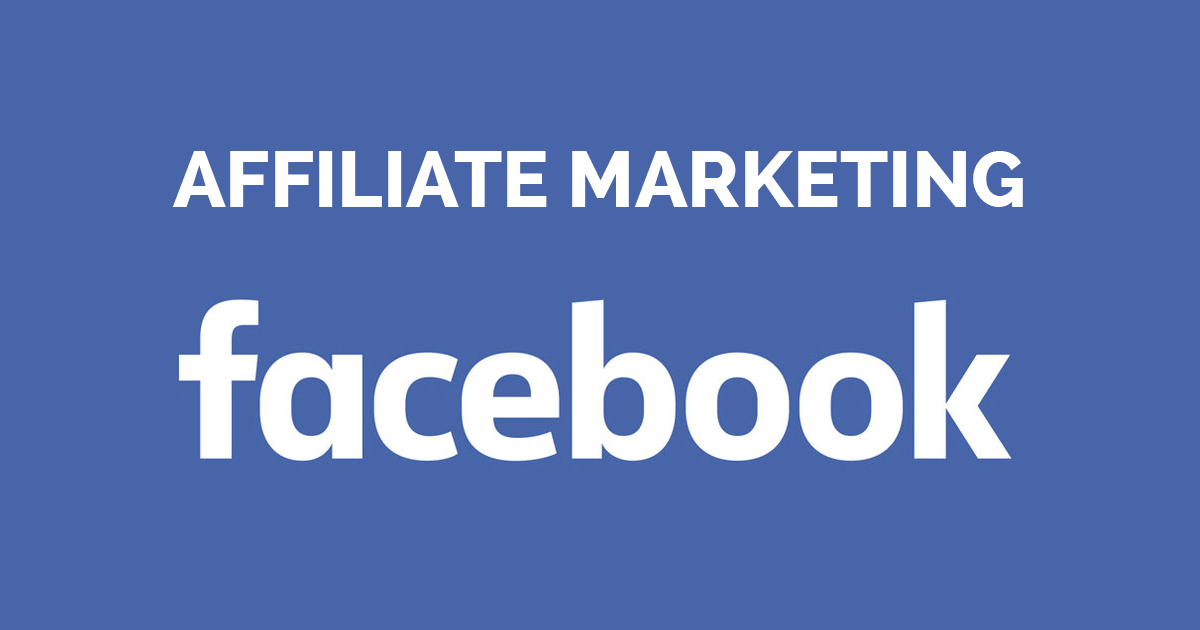
Visual content, such as images and videos, tends to perform better on Facebook. Use high-quality visuals to grab attention and convey your message effectively. Infographics and short videos can also be very engaging. Ensure that your visuals are relevant to the product and resonate with your audience. For instance, if you're promoting fitness products, use images of people working out or videos demonstrating the product in action. Additionally, use eye-catching graphics and vibrant colors to make your content stand out in the crowded Facebook feed.
Your copy should be clear, concise, and compelling. Use persuasive language and include a strong call-to-action (CTA) to encourage users to take the desired action. Keep your audience's needs and preferences in mind while writing. Highlight the key benefits of the product and address any pain points your audience might have. Use engaging headlines and opening lines to capture attention, and maintain a conversational tone to make your content more relatable. For example, instead of saying "Buy this product now," try "Transform your fitness routine with this must-have gadget!"
User-generated content (UGC) can be a powerful tool for affiliate marketing. Encourage your audience to share their experiences with your products or services and feature their content on your page. This can build trust and credibility. Create campaigns or contests to motivate users to create and share content. For example, you could ask customers to post photos or videos of themselves using your product with a specific hashtag. Showcase the best UGC on your Facebook page, giving credit to the original creators. This not only boosts engagement but also provides authentic testimonials that can influence potential customers.
Example of Engaging Content:
Visual Content: Post a high-quality video showing a fitness influencer using your product in a workout routine. Include before-and-after photos to highlight the product's effectiveness.
Compelling Copy: "Ready to take your fitness journey to the next level? Our innovative workout gadget helps you achieve your goals faster and more efficiently. Don't just take our word for it – see the results for yourself! 💪 #FitnessGoals #TransformYourWorkout"
User-Generated Content: Feature a photo of a happy customer using your product, with their testimonial: "I've tried many fitness gadgets, but this one is a game-changer! It's easy to use and really works. Thanks for helping me stay on track with my fitness goals! #HappyCustomer"
By combining these elements, you can create engaging, persuasive content that resonates with your audience and drives them to take action.
Facebook Stories are a great way to share short, engaging content. Use Stories to highlight promotions, share behind-the-scenes content, or showcase user testimonials. Stories disappear after 24 hours, creating a sense of urgency and exclusivity. You can use interactive features like polls, questions, and stickers to increase engagement. For example, you could post a Story featuring a limited-time discount on a product, with a swipe-up link to make the purchase.
Facebook Live allows you to connect with your audience in real-time. Use live sessions to demonstrate products, answer questions, or host giveaways. This can increase engagement and drive sales. Plan your live sessions in advance and promote them to ensure a good turnout. During the live session, interact with viewers by responding to comments and questions. Demonstrating products live can provide a more authentic and immediate experience, helping to build trust and encourage purchases.
Creating or participating in Facebook Groups can help you build a community around your brand. Share valuable content, engage with members, and promote your affiliate products in a non-intrusive way. Groups allow for more personal and direct interactions with your audience. You can create a group centered around your niche and invite your followers to join. Regularly post tips, answer questions, and share relevant articles or videos. Use group features like events or polls to keep members engaged and involved.
Example of Utilizing Facebook Features:
Facebook Stories: Post a series of Stories showing a day in the life of using your product. Start with a morning routine, highlight the product in action, and end with user testimonials. Use features like stickers, hashtags, and swipe-up links to make it interactive.
Facebook Live: Announce a live Q&A session where you will demonstrate new products, answer audience questions, and host a giveaway. Encourage viewers to tune in by promoting the event a week in advance and reminding them with posts and Stories.
Facebook Groups: Create a group for fitness enthusiasts where you share daily workout tips, healthy recipes, and motivational posts. Engage with members by responding to their posts, hosting live workout sessions, and sharing exclusive discount codes for your affiliate products.
By effectively utilizing these Facebook features, you can create dynamic and engaging content that resonates with your audience, builds community, and drives affiliate sales.
Use Facebook Insights to track the performance of your content. Pay attention to metrics such as reach, engagement, and conversion rates. This will help you understand what works and what doesn't. Monitor key metrics including likes, shares, comments, click-through rates (CTR), and the number of sales or leads generated from your content. By analyzing these metrics, you can identify which types of content resonate most with your audience and adjust your strategy accordingly.
Conduct A/B testing to compare different versions of your content. Test different headlines, images, and CTAs to see which ones perform better. Use the insights gained to optimize your content strategy. For instance, you could create two versions of a Facebook ad, each with a different image or headline, and measure which one gets more clicks and conversions. Continuous A/B testing helps you refine your content to better meet your audience's preferences and improve overall performance.
Based on your analysis, make necessary adjustments to your content strategy. Continuously monitor your performance and refine your approach to achieve better results. If certain types of posts are performing poorly, consider altering the format, timing, or messaging. Stay flexible and be willing to experiment with new content ideas and formats. Regularly update your audience personas to reflect new insights and trends, ensuring your content remains relevant and engaging.
Conclusion
Effective content strategies are key to successful affiliate marketing on Facebook. By understanding your audience, crafting engaging content, utilizing Facebook features, and continuously analyzing and optimizing your efforts, you can maximize your affiliate marketing success on the platform. Consistently track performance, test different approaches, and adapt your strategy based on data-driven insights to maintain and grow your affiliate marketing business on Facebook.
